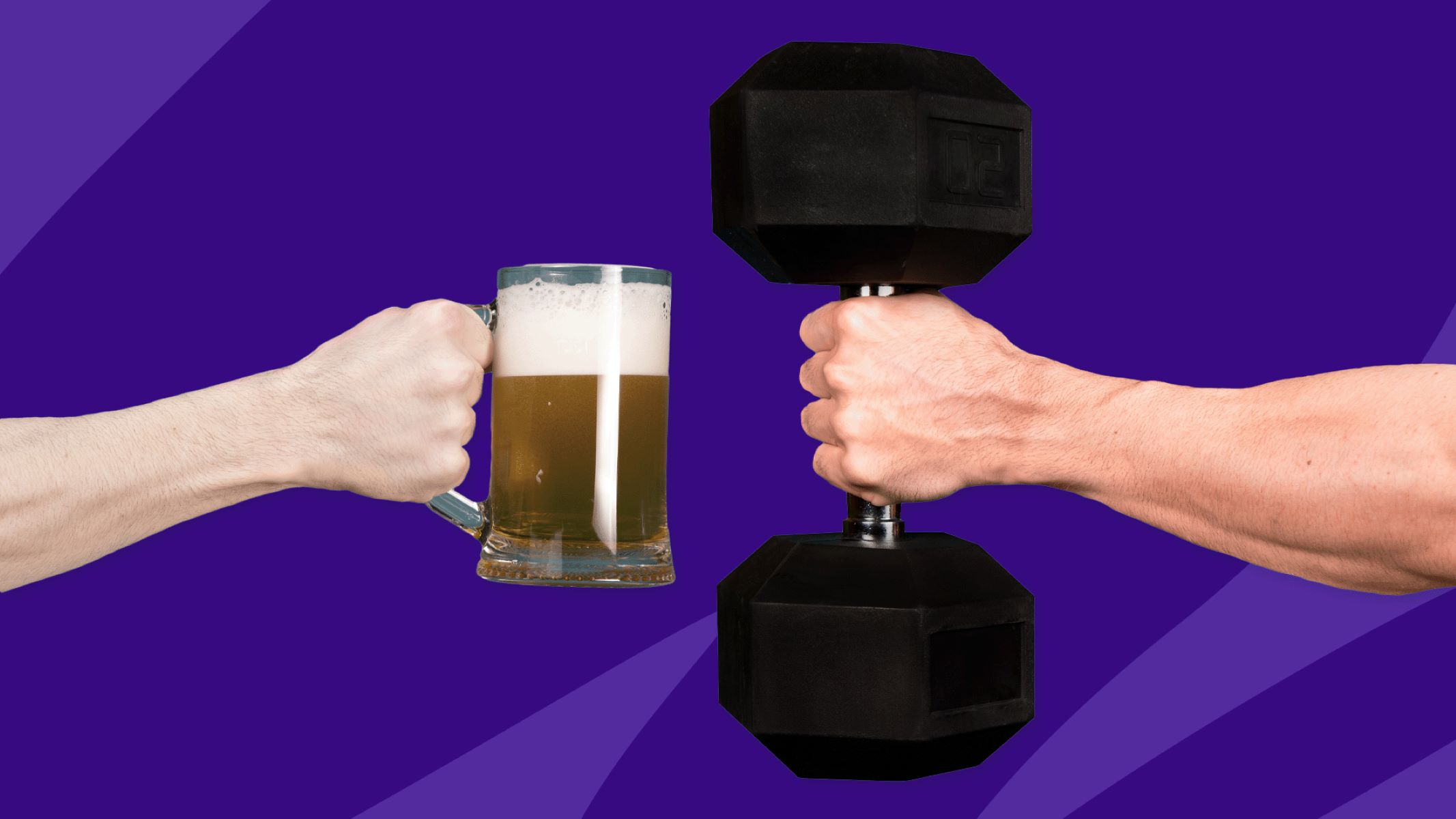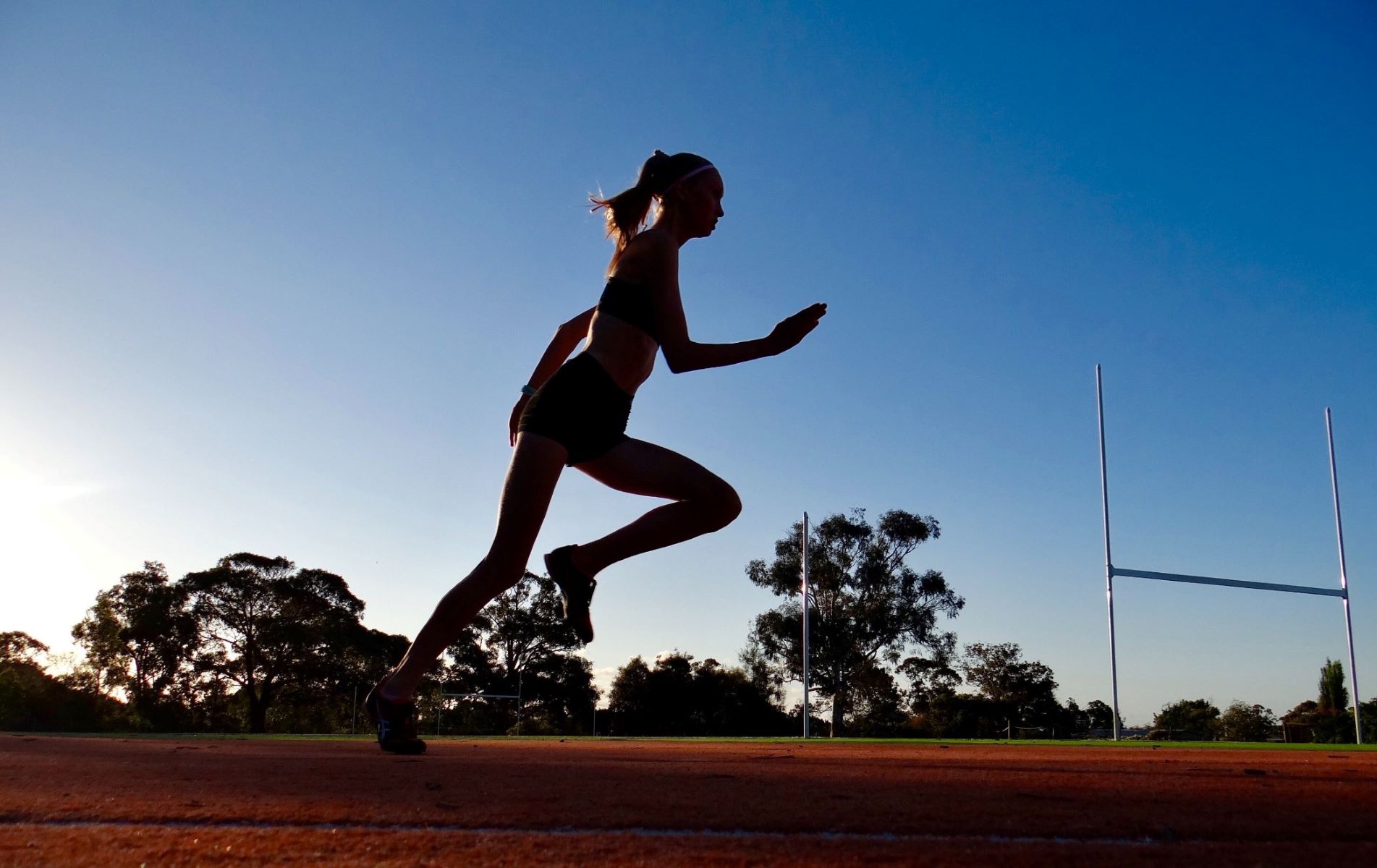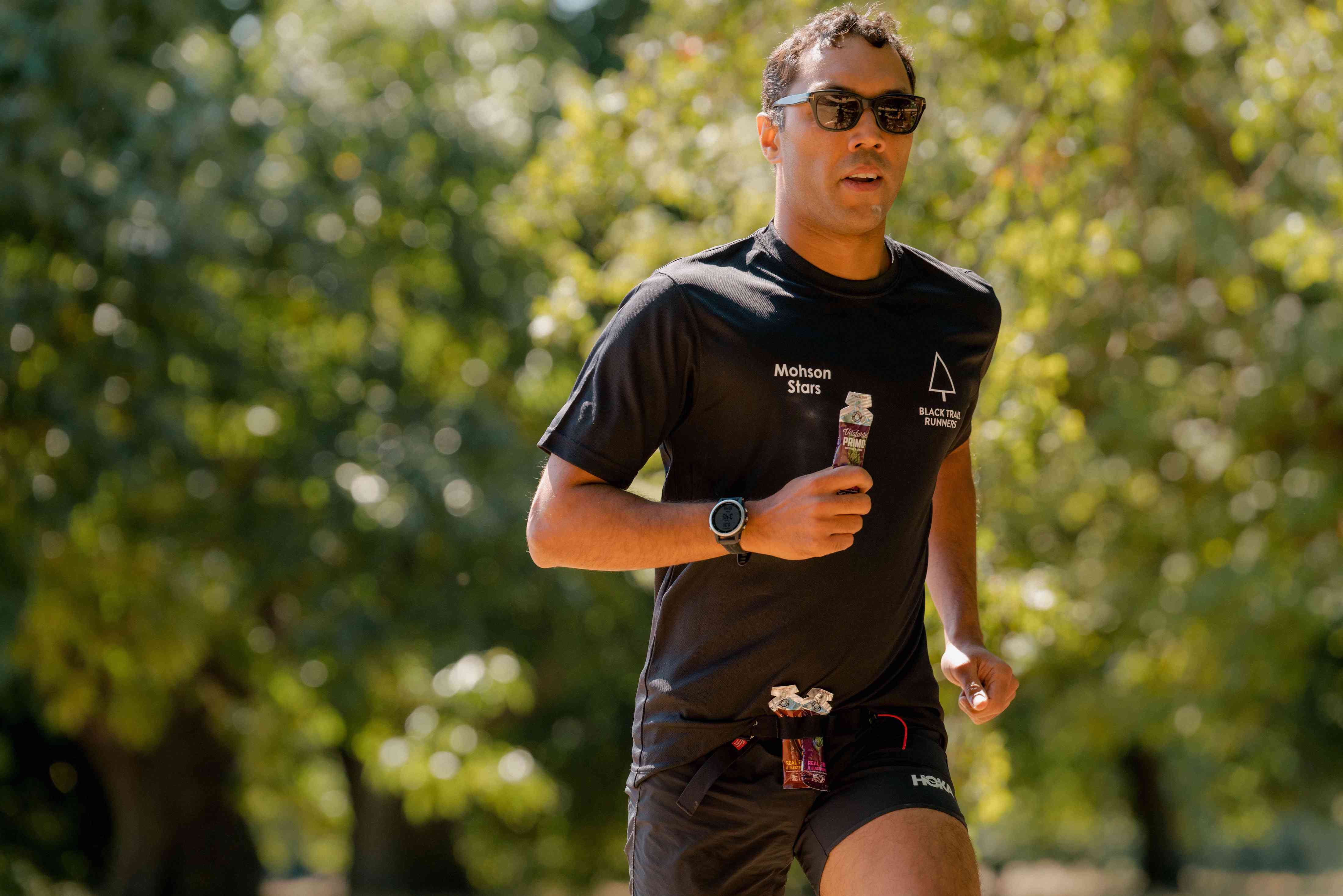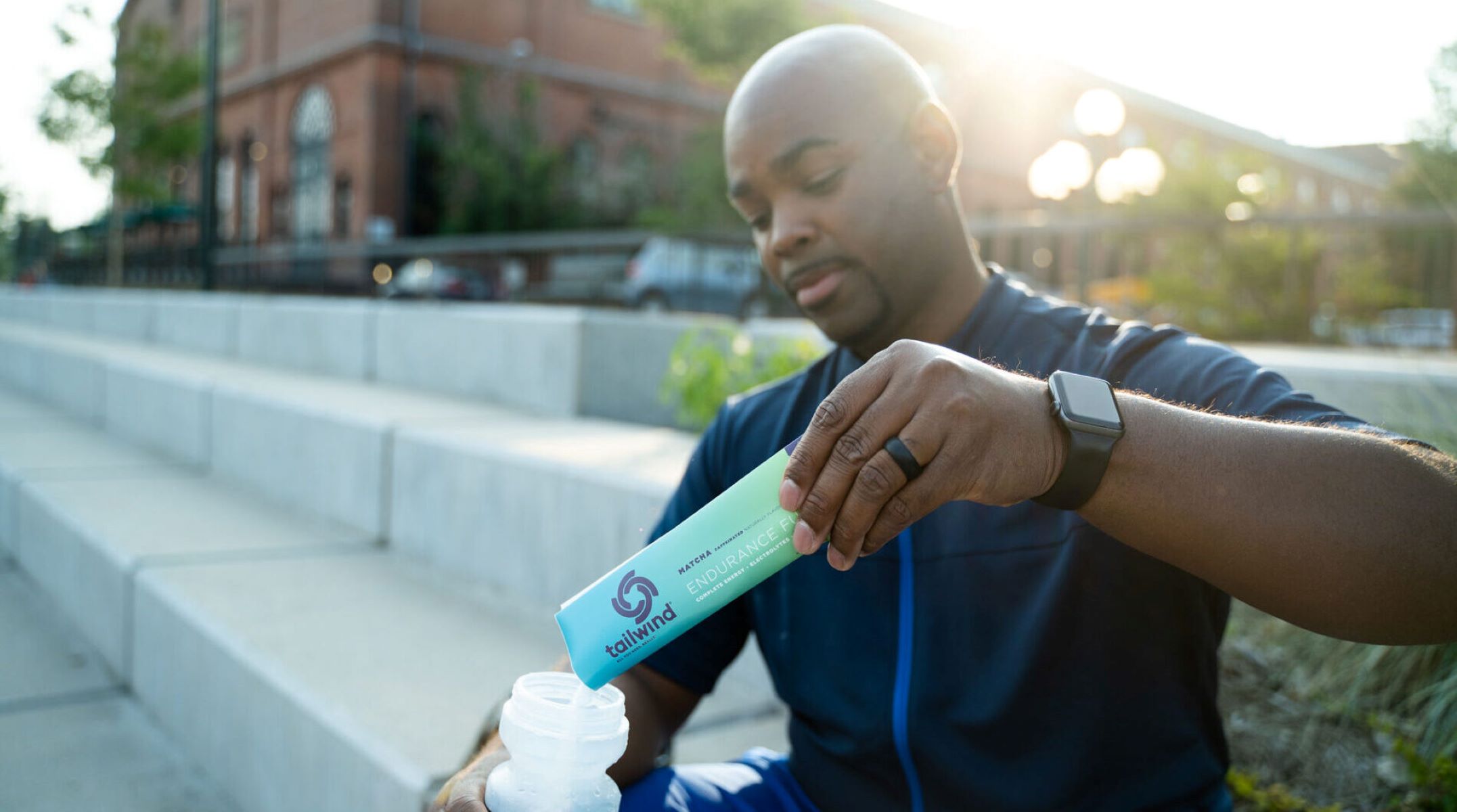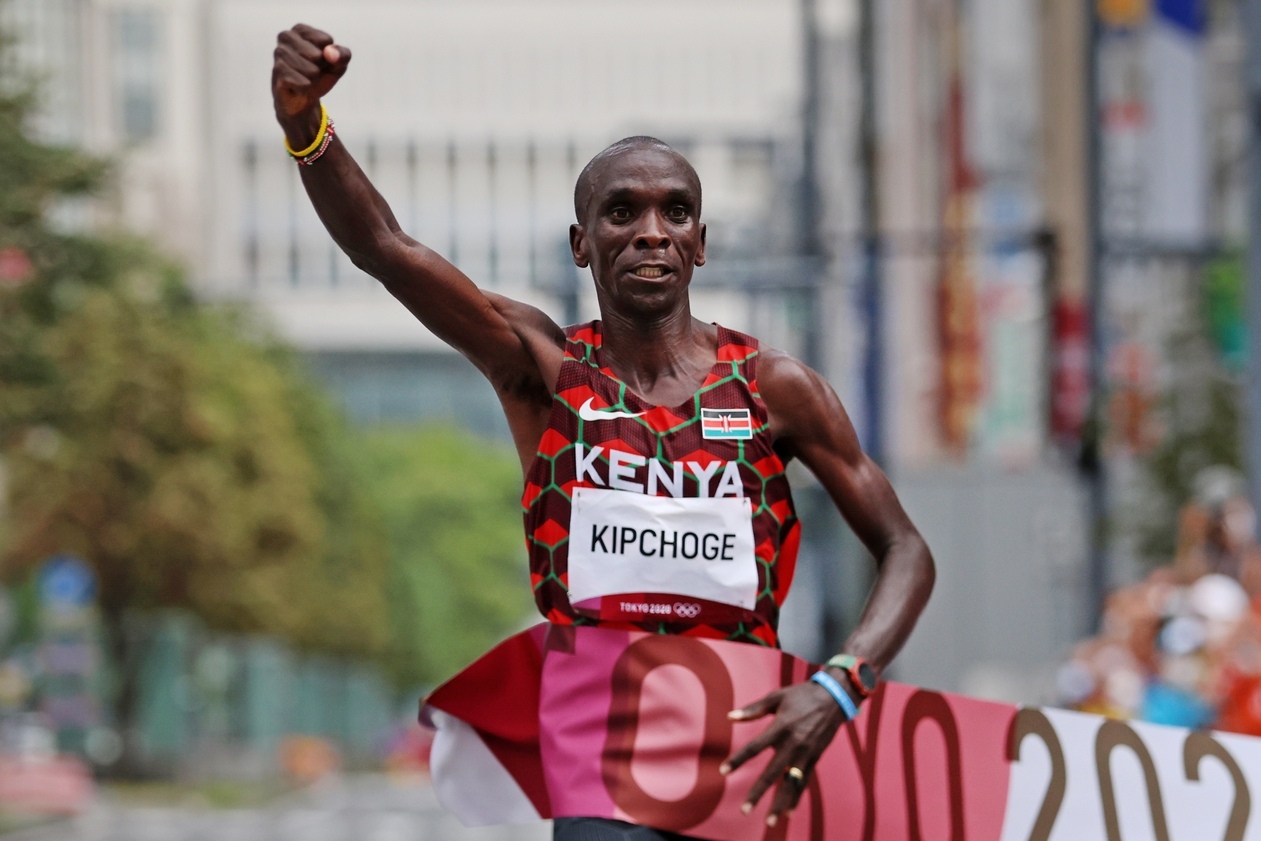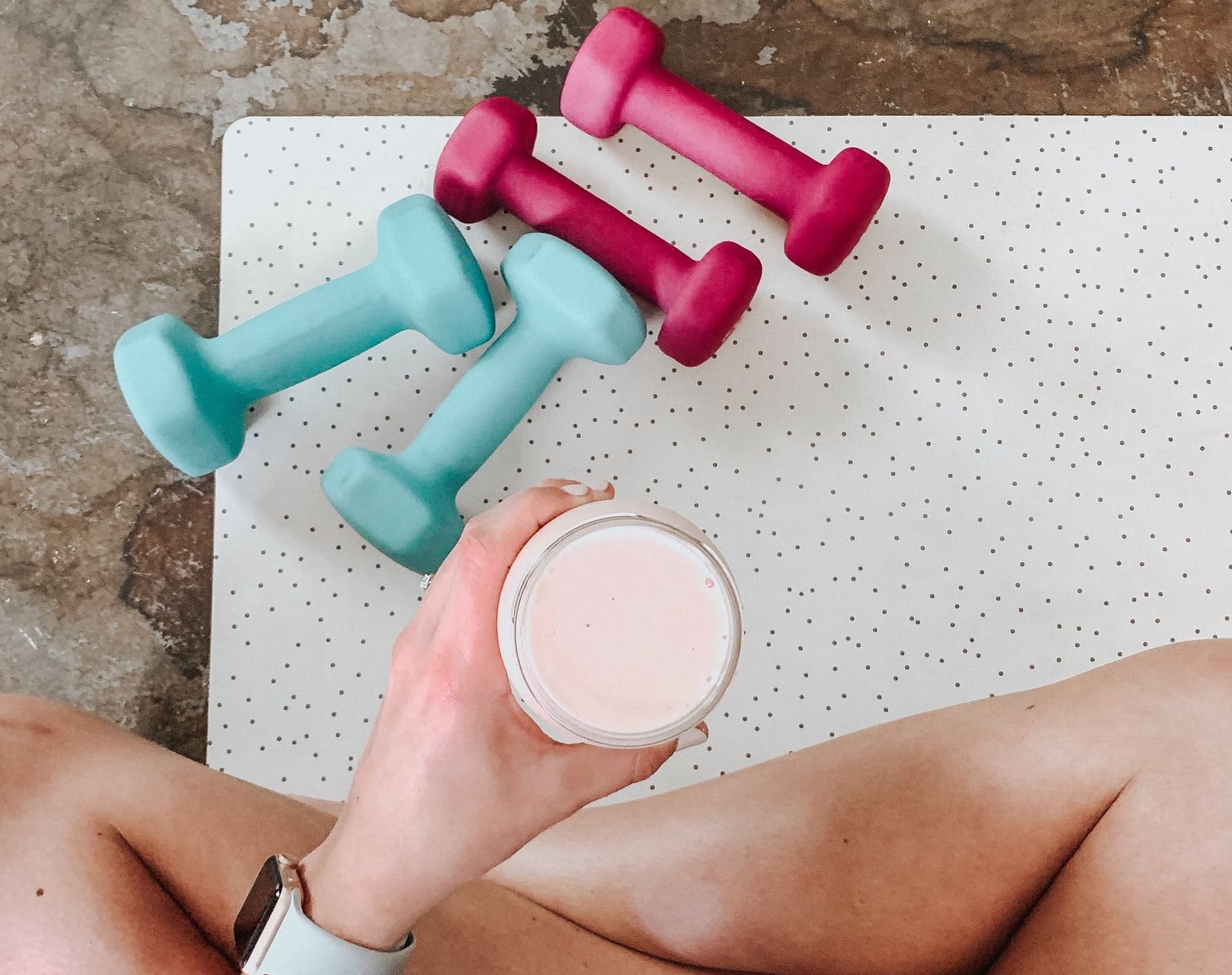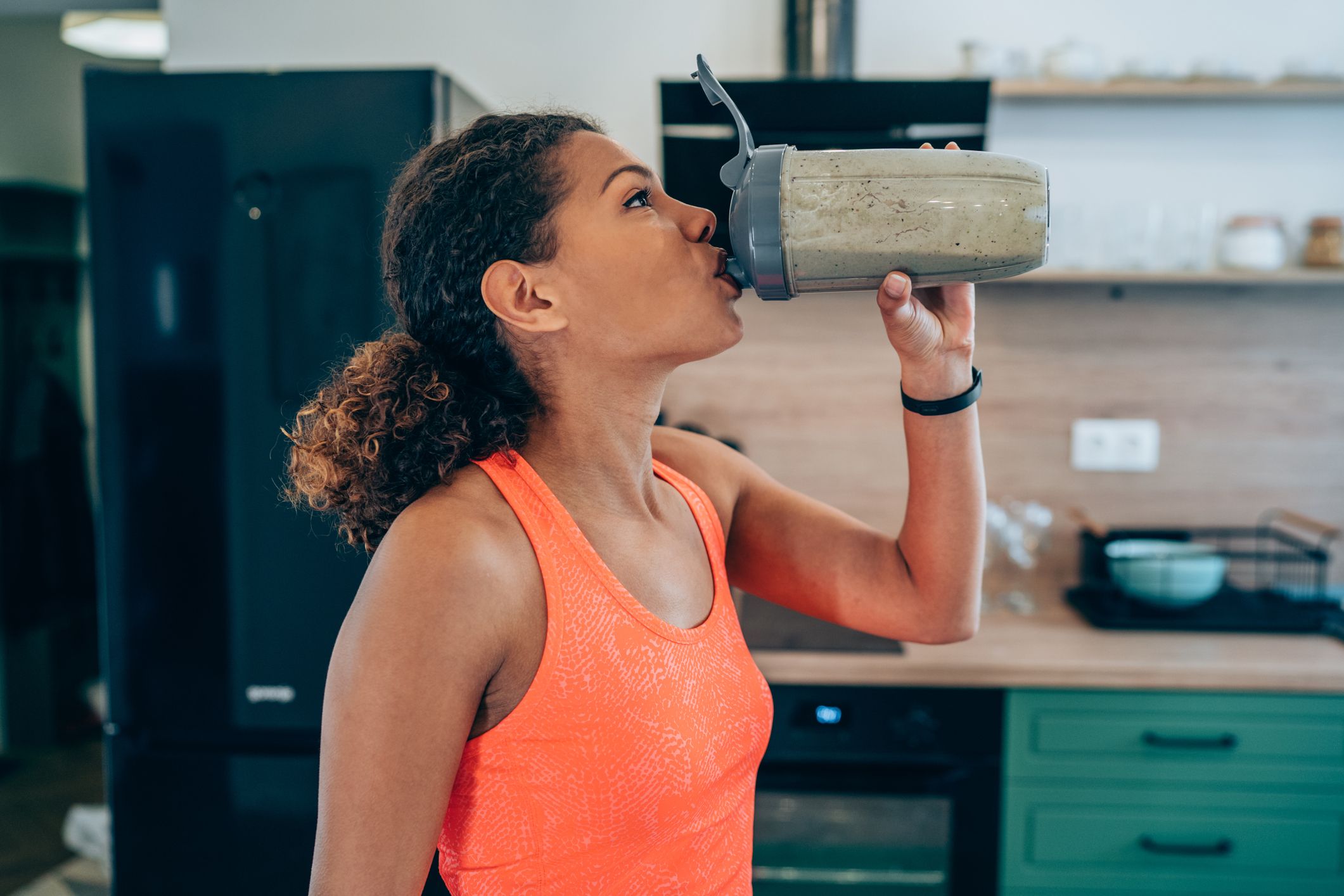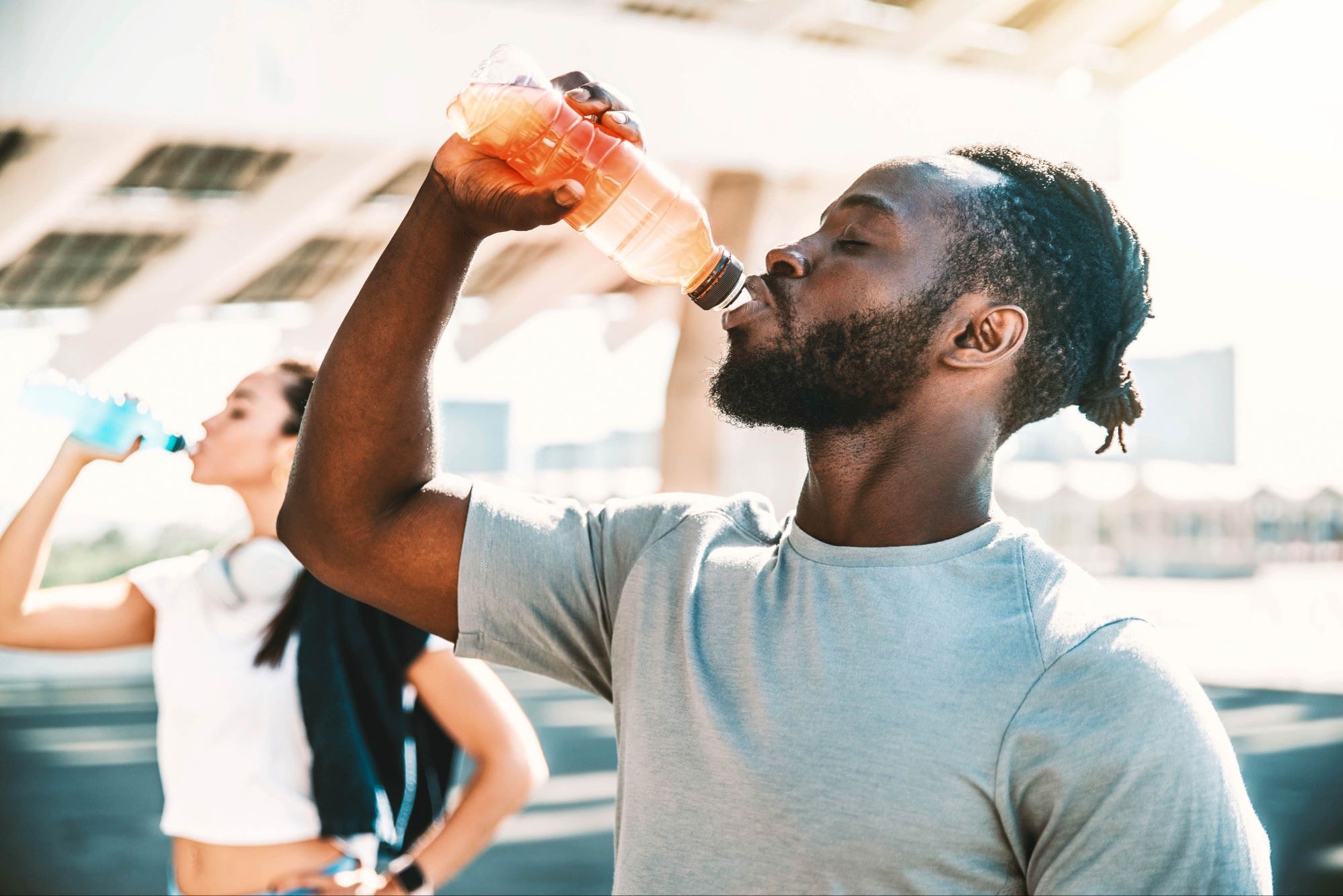Home>Misc>Featured>How Energy Drinks Effect Athletic Performance


Featured
How Energy Drinks Effect Athletic Performance
Modified: August 21, 2023
Discover how featured energy drinks can impact athletic performance and learn the effects of their consumption on your overall stamina and endurance.
Introduction
Energy drinks have become increasingly popular among athletes seeking a quick boost of energy and enhanced performance. With their enticing promises of increased endurance, strength, and focus, it’s no wonder that many athletes turn to these beverages to gain a competitive edge. But how exactly do energy drinks affect athletic performance?
Energy drinks are designed to deliver a combination of caffeine, sugars, vitamins, and other stimulants that can provide a temporary burst of energy. They are often marketed as a convenient and effective way to enhance both physical and mental performance. However, it is important to understand the potential benefits and risks associated with consuming energy drinks as an athlete.
One of the key components of energy drinks is caffeine, a stimulant that can have both positive and negative effects on athletic performance. Caffeine has been shown to increase alertness, reduce fatigue, and improve endurance, which can be beneficial for athletes during prolonged bouts of exercise. It acts by blocking the adenosine receptors in the brain, preventing drowsiness and enhancing mental focus.
While caffeine can improve endurance, it is important to note that there is a fine line between optimal and excessive consumption. Consuming too much caffeine can lead to side effects such as increased heart rate, jitteriness, and gastrointestinal distress, which can negatively impact athletic performance.
In addition to caffeine, energy drinks often contain high levels of sugar. While sugar can provide a quick source of energy, especially during intense physical activity, excessive consumption can lead to energy crashes and hinder performance. It is crucial for athletes to carefully monitor their sugar intake and choose energy drinks with lower sugar content or consider alternative sources of energy.
Furthermore, the combination of caffeine and sugar in energy drinks can lead to dehydration. Caffeine acts as a diuretic, promoting fluid loss through increased urine production, while excessive sugar consumption can impair hydration by drawing water out of the body’s cells. Dehydration can have a significant negative impact on athletic performance, reducing endurance, strength, and cognitive function.
It is also important to consider the potential interactions between energy drinks and other substances commonly used by athletes. For instance, mixing energy drinks with alcohol or certain medications can have serious health consequences. Similarly, using energy drinks as a substitute for proper nutrition and hydration can lead to nutrient deficiencies and hinder recovery.
Overall, energy drinks can provide a temporary boost in energy and focus, making them appealing to athletes. However, it is crucial to understand the potential risks and side effects associated with their consumption. In the following sections, we will explore the specific effects of energy drinks on endurance, strength, power, reaction time, and focus, as well as provide recommendations for athletes to optimize their performance safely and effectively.
The Composition of Energy Drinks
Understanding the composition of energy drinks is crucial in determining their potential effects on athletic performance. While the specific ingredients may vary between brands, most energy drinks contain a combination of caffeine, sugars, vitamins, and other stimulants.
Caffeine is the primary active ingredient in energy drinks and is known for its stimulating effects on the central nervous system. It works by blocking adenosine receptors, which helps reduce fatigue and increase alertness. The amount of caffeine in energy drinks can range from 80 milligrams to over 300 milligrams per serving, depending on the brand and size of the beverage.
In addition to caffeine, energy drinks often contain high amounts of sugar. These sugars, such as high-fructose corn syrup or sucrose, provide a quick source of energy. However, excessive sugar consumption can lead to energy crashes and hinder athletic performance. It is important for athletes to be mindful of their sugar intake and consider choosing energy drinks with lower sugar content or exploring alternative sources of energy.
Another common component of energy drinks is B vitamins. These vitamins, including B6, B12, and niacin, are crucial for energy production and metabolism. However, it is important to note that consuming excessive amounts of B vitamins through energy drinks does not necessarily provide additional benefits and may simply result in the excretion of excess vitamins through urine.
Many energy drinks also contain other stimulants such as taurine, guarana, and ginseng. These substances are believed to enhance energy and focus, although the research on their effectiveness is limited. It is worth noting that combining multiple stimulants can increase the risk of side effects and may not necessarily improve athletic performance.
Additionally, energy drinks often contain additives and flavorings to improve taste and shelf life. These additives can include artificial sweeteners, preservatives, and colors. While the overall impact of these additives on athletic performance is minimal, individuals with specific sensitivities or allergies should be cautious when consuming energy drinks.
It is important to remember that the composition of energy drinks can vary greatly between brands and product lines. Therefore, reading the nutrition label and understanding the specific ingredients is crucial in making informed choices about consuming energy drinks as an athlete.
In the next sections, we will explore the effects of energy drinks on various aspects of athletic performance, including endurance, strength, power, reaction time, and focus.
Effects of Energy Drinks on Endurance
Endurance is a key component of athletic performance, particularly for athletes engaged in activities such as long-distance running, cycling, or swimming. Energy drinks, with their high caffeine content, may have potential benefits for improving endurance.
Caffeine, as the primary active ingredient in energy drinks, has been shown to have a positive impact on endurance performance. By blocking adenosine receptors in the brain, caffeine reduces the perception of fatigue and enhances alertness. This can result in improved endurance by allowing athletes to push themselves further and delay the onset of exhaustion.
Research has demonstrated that consuming caffeine prior to endurance activities can lead to increased time to exhaustion and improved overall performance. Studies have shown that caffeine can enhance endurance performance by 4-5% compared to a placebo. This improvement can be attributed to the ability of caffeine to stimulate the central nervous system and mobilize fatty acids as a fuel source, conserving glycogen stores for later stages of exercise.
It’s important to note that the optimal dosage of caffeine for improving endurance performance can vary between individuals. The amount of caffeine found in energy drinks ranges from 80-300 milligrams per serving, but some athletes may require higher or lower doses to achieve the desired effects. It is recommended to start with a lower dose and gradually increase if needed, while considering individual tolerance and potential side effects.
However, it is important for athletes to exercise caution in their caffeine consumption. While moderate amounts of caffeine can enhance endurance, excessive consumption can lead to negative side effects such as increased heart rate, jitteriness, and gastrointestinal distress. It is crucial to find the right balance to maximize the benefits of caffeine without experiencing the detrimental effects.
Furthermore, it is important to keep in mind that energy drinks often contain high levels of sugar, which can offset the potential benefits on endurance. Excessive sugar consumption can lead to energy crashes and hinder performance. Some energy drinks offer low or zero sugar options, which may be more suitable for athletes looking to optimize their endurance without the drawbacks of excessive sugar intake.
Athletes should also consider the potential dehydration effects of consuming energy drinks. Caffeine acts as a diuretic, promoting fluid loss through increased urine production. Therefore, athletes should supplement their energy drink intake with adequate hydration to counterbalance the diuretic effects of caffeine. This can be achieved by drinking water alongside energy drinks or using alternative hydration strategies such as sports drinks or electrolyte solutions.
Incorporating energy drinks into an endurance training regimen requires careful consideration and individualized experimentation. Athletes should assess their tolerance to caffeine, monitor hydration levels, and be mindful of the sugar content in energy drinks. By doing so, athletes can potentially experience improvements in endurance and overall performance.
Effects of Energy Drinks on Strength and Power
Strength and power are key components of athletic performance, especially for athletes involved in activities that require explosive movements, such as weightlifting, sprinting, or high-intensity interval training. While energy drinks are often marketed as performance enhancers, their impact on strength and power is not as clear-cut as their effects on endurance.
The primary ingredient in energy drinks, caffeine, has been shown to have potential benefits for improving strength and power. Caffeine acts as a stimulant and can enhance the contraction force of skeletal muscles, allowing athletes to generate greater power output.
Research has shown that consuming caffeine prior to strength and power activities can lead to improved performance. Caffeine has been found to positively affect muscular strength, muscular endurance, and power output. It can also delay the onset of muscle fatigue, allowing athletes to perform more repetitions or exert more force before reaching exhaustion.
However, it is important to note that the effects of caffeine on strength and power can be highly individualized. Some individuals may respond more favorably to caffeine and experience enhanced performance, while others may not see significant improvements. The optimal dosage of caffeine for improving strength and power can vary between individuals, and it is recommended to start with a lower dose and gradually increase if needed.
It is worth mentioning that the performance-enhancing effects of caffeine on strength and power are more pronounced in activities that are short-duration and require maximal effort. In activities that rely more on muscular endurance, such as multiple sets of repetitions, the impact of caffeine may be less significant.
Additionally, athletes should be aware of the potential side effects and risks associated with consuming energy drinks for strength and power activities. Excessive caffeine intake can lead to increased heart rate, restlessness, and gastrointestinal distress, which can negatively impact performance. It is important to strike a balance between achieving the desired benefits and avoiding the drawbacks of excessive caffeine consumption.
Furthermore, athletes should consider the other ingredients in energy drinks that may affect strength and power. Some energy drinks contain substances such as taurine and guarana, which are believed to enhance energy and stamina. However, further research is needed to determine their specific effects on strength and power in athletic performance.
Overall, while caffeine in energy drinks can potentially have positive effects on strength and power, athletes should approach their use with caution. It is recommended to monitor individual response, consider the potential side effects, and be mindful of the other ingredients present in energy drinks. Additionally, seeking advice from sports nutrition professionals can help athletes optimize their performance effectively and safely.
Effects of Energy Drinks on Reaction Time and Focus
When it comes to sports performance, reaction time and focus are crucial for making quick decisions, reacting to stimuli, and maintaining concentration throughout the game or activity. Energy drinks, with their high caffeine content, are often consumed to enhance these cognitive aspects of athletic performance.
Caffeine, as the primary active ingredient in energy drinks, has been shown to have positive effects on reaction time and focus. It acts by blocking adenosine receptors in the brain, reducing drowsiness and increasing alertness. This can help athletes stay more focused and react more quickly to stimuli, potentially improving overall performance.
Research has demonstrated that consuming caffeine prior to sports activities can lead to improved reaction time. Athletes who consumed caffeine have shown faster reaction times compared to those who did not, allowing them to respond more quickly to cues or opponents’ movements.
In addition to improved reaction time, caffeine can enhance mental focus and concentration. It promotes the release of neurotransmitters such as dopamine and serotonin, which play a crucial role in mood, attention, and cognitive function. By increasing the availability of these neurotransmitters, caffeine can help athletes maintain mental sharpness and stay engaged in the game or activity.
However, it is important to note that the effects of caffeine on reaction time and focus can vary between individuals. Some athletes may be more sensitive to the stimulating effects of caffeine and experience more significant improvements, while others may not see as much of a difference. The optimal dosage of caffeine for enhancing reaction time and focus may also differ between individuals.
Athletes should also be cautious of the potential side effects of consuming energy drinks for reaction time and focus. Excessive caffeine intake can lead to increased heart rate, restlessness, and anxiety, which can negatively impact cognitive function and overall performance. Athletes should strive to find the right balance and dosage of caffeine that provides the desired benefits without causing detrimental effects.
Furthermore, it is important to consider the other ingredients in energy drinks that may affect reaction time and focus. Some energy drinks contain additional stimulants such as taurine and guarana, which are believed to enhance mental performance. However, the specific effects of these substances on reaction time and focus during athletic performance are still not fully understood.
Athletes should approach the use of energy drinks for enhancing reaction time and focus with caution. It is recommended to assess individual response, monitor caffeine intake, consider potential side effects, and be mindful of the other ingredients present. Seeking guidance from sports nutrition professionals can help athletes maximize the benefits of energy drinks on reaction time and focus while minimizing risks.
Potential Risks and Side Effects of Energy Drinks
While energy drinks can provide temporary benefits to athletic performance, it is important for athletes to be aware of the potential risks and side effects associated with their consumption. Excessive or inappropriate use of energy drinks can have negative consequences on both physical and mental health.
One of the primary concerns with energy drinks is their high caffeine content. Consuming excessive amounts of caffeine can lead to side effects such as increased heart rate, elevated blood pressure, and palpitations. These effects can hinder athletic performance and even pose health risks, particularly for individuals with underlying cardiovascular conditions.
Additionally, excessive caffeine consumption can disrupt sleep patterns, leading to insomnia and decreased recovery time. Sleep is critical for athletes to properly rest and restore their bodies after intense physical activity. Disrupted sleep can impair performance, cognitive function, and overall well-being.
Another risk of energy drinks is their high sugar content. Excessive sugar consumption can lead to energy crashes, weight gain, and an increased risk of developing chronic diseases such as diabetes and obesity. Athletes should be mindful of their sugar intake and consider alternative sources of energy or choose energy drinks with lower sugar content.
The combination of caffeine and sugar in energy drinks can also contribute to dehydration. Caffeine acts as a diuretic, promoting increased urine production and fluid loss. Excessive sugar intake can further impair hydration by drawing water out of cells. Dehydration can negatively impact athletic performance, leading to decreased endurance, strength, and cognitive function.
Furthermore, energy drinks are often consumed alongside alcohol, either for flavor or to counteract the depressive effects of alcohol. This can be a dangerous combination, as energy drinks can mask the depressant effects of alcohol, leading to a higher risk of alcohol-related injuries, impaired judgment, and risk-taking behaviors.
Individuals with certain health conditions, such as heart disease, hypertension, or sensitivity to stimulants, should exercise caution when consuming energy drinks. It is advisable for these individuals to consult with healthcare professionals before incorporating energy drinks into their routine.
Moreover, the marketing and packaging of energy drinks can contribute to potential risks. The appealing branding, claims of increased performance, and association with extreme sports or high intensity activities may encourage excessive consumption and create a false sense of invincibility. It is important for athletes to be mindful of their own limits and not rely solely on energy drinks for performance enhancement.
In order to mitigate the risks and side effects of energy drinks, athletes should strive for moderation and balance. It is crucial to monitor caffeine and sugar intake, stay hydrated with water, prioritize sleep and rest, and maintain a well-rounded and nutritious diet. Seeking guidance from sports nutrition professionals can also provide personalized recommendations for optimizing performance safely and effectively.
Recommendations for Athletes
While energy drinks may seem like a tempting solution for improving athletic performance, it is important for athletes to approach their consumption with caution and consider alternative strategies for optimizing their performance. Here are some recommendations for athletes to consider:
- Assess individual needs: Every athlete is unique, and what works for one person may not work for another. It is important to assess individual needs, training goals, and tolerances to caffeine and other stimulants.
- Consult with professionals: Seek guidance from sports nutrition professionals who can provide personalized recommendations based on individual goals, training intensity, and health status.
- Focus on balanced nutrition: Prioritize a well-rounded, nutrient-dense diet that provides energy, hydration, and essential nutrients. Energy drinks should not be used as a substitute for proper nutrition.
- Stay hydrated: Hydration is crucial for optimal athletic performance. Drink water regularly throughout the day and during training or competition. Energy drinks should not be relied upon as the main source of hydration.
- Monitor caffeine intake: Be mindful of caffeine consumption from all sources, including energy drinks, coffee, tea, and other caffeinated beverages or foods. Consider the potential cumulative effects of caffeine when calculating total intake.
- Choose low-sugar options: Select energy drinks with lower sugar content or explore alternatives such as sugar-free versions or natural sources of energy like fruits, nuts, or whole grains.
- Avoid mixing with alcohol: Energy drinks should not be consumed in combination with alcohol or other substances that can have negative interactions and potential health risks.
- Timing is key: If using energy drinks for performance enhancement, consider the timing of consumption. Consuming caffeine too close to bedtime can disrupt sleep patterns, so it may be best to avoid energy drinks in the evening.
- Listen to your body: Pay attention to how your body reacts to energy drinks and make adjustments accordingly. If you experience negative side effects or find that energy drinks are not improving your performance, reconsider their use.
It’s important to note that energy drinks should not be seen as a quick-fix solution for enhancing athletic performance. They should be used sparingly, in moderation, and as part of a comprehensive approach that includes proper nutrition, hydration, rest, and a well-designed training program.
By taking a holistic approach to performance enhancement and incorporating these recommendations, athletes can optimize their performance while also safeguarding their health and well-being.
Conclusion
Energy drinks can offer a quick boost of energy and potentially enhance athletic performance. However, it is crucial for athletes to approach their consumption with caution and be aware of the potential risks and side effects involved.
The caffeine content in energy drinks can provide benefits such as improved endurance, reaction time, and focus. It can also enhance strength and power, although individual responses may vary. However, excessive caffeine intake can lead to negative effects such as increased heart rate, disrupted sleep, and dehydration. Athletes should carefully monitor their caffeine intake and be mindful of their individual tolerances and needs.
The sugar content in energy drinks can also pose risks, including energy crashes and increased health risks associated with excessive sugar intake. Athletes should consider low-sugar alternatives or utilize natural sources of energy to avoid the drawbacks of sugary drinks.
Moreover, the combination of energy drinks with alcohol or other substances can have dangerous health consequences. It is important to use energy drinks separately from other substances and be aware of potential interactions.
By following recommended guidelines, including assessing individual needs, consulting professionals, focusing on balanced nutrition, staying properly hydrated, and monitoring caffeine intake, athletes can optimize their performance effectively and safely.
Ultimately, energy drinks should not be relied upon as a sole source of performance enhancement. A comprehensive approach that includes proper training, nutrition, hydration, rest, and a healthy lifestyle is key to achieving optimal athletic performance. Making informed decisions and prioritizing overall well-being is essential for long-term success in sports and maintaining good health.

